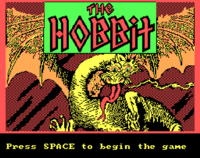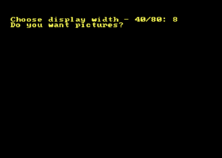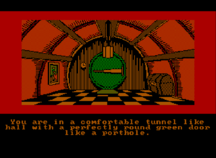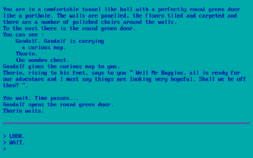User:Thijshijsijsjss/Human Parser/Mood Organs: Difference between revisions
(Transclude the game opening reference sheet) |
(Add section for papers please) |
||
| Line 15: | Line 15: | ||
==[[User:Thijshijsijsjss/Prototypes/The_Game_Opening_Reference_Sheet|The Game Opening Reference Sheet]]== | ==[[User:Thijshijsijsjss/Prototypes/The_Game_Opening_Reference_Sheet|The Game Opening Reference Sheet]]== | ||
{{:User:Thijshijsijsjss/Prototypes/The_Game_Opening_Reference_Sheet}} | {{:User:Thijshijsijsjss/Prototypes/The_Game_Opening_Reference_Sheet}} | ||
=Games= | |||
==Papers, Please== | |||
* https://papersplea.se/ | |||
''Papers, Please'' is a videogame by Lucas Pope in which a player acts as a border control agent. The core gameplay involves cross-referencing documents to verify a person's identity. This is done under a timer: after so many minutes, the day ends, and you're paid according to the number of correctly assessed cases. With this money, you need to provide for your family. While playing, you'll find yourself with a tight budget, so you'll speed up and make educated gambles -- or hasty oversights. Meanwhile, the people you're assessing tell you about the ways life's unfairly treating them. Why can't you make an exception this time? It is an empathically challenging game. | |||
The mechanic of referencing documents and assessing subjects, I could see work for ''Human Parser'' as well. Much like in [[User:Thijshijsijsjss/Human_Parser/The_Robot_Assembly_Line_and_Social_Performance_Testing_Facility|The Robot Assembly Line and Social Performance Testing Facility]], a player could assess robot and human behavior. This bears resemblance to e.g. autism screening tests, that while often intended as helpful, are in reality a harsh assessment of what is deemed accepted, normal, good, functional and healthy. | |||
</div> | </div> | ||
Revision as of 23:30, 23 November 2024
'A 481. Awareness of the manifold possibilities open to me in the future: new hope that --' 'I know 481,' he interrupted. He had dialed out the combination many times; he relied on it greatly. (Dick, 1968, p. 3)[1]
The Mood Organ is a device with which, by punching in a number, a human user can instantly alter his or her mood. (Beckett, 2015)[2] What organ is pumping blood through my project? This page collects moodboards -- dials of any kind.
Note that I also have a reader, which is used for general referencing, digestive reading and broad notetaking. This page is meant to specifically collect material in relation to the Human Parser project: powerful game mechanics, relevant quotes, etc.
The Game Opening Reference Sheet
The Game Opening Reference Sheet is a prototype of research, a collection of references in presentation, mechanics or theme. In particular, a collection of 'opening sequences' in classic and retro style games: an opening sequence being the sequence between a game's title screen (if present) and the start of gameplay.
An example sequence from The Hobbit (1982):

|

|

|

|
At the moment, the reference sheet resides on my machine. Two screenshots are presented below. Eventually, this might take a different shape. It would be great to have as a resource to share, that others might append to as well.

|

|
Games
Papers, Please
Papers, Please is a videogame by Lucas Pope in which a player acts as a border control agent. The core gameplay involves cross-referencing documents to verify a person's identity. This is done under a timer: after so many minutes, the day ends, and you're paid according to the number of correctly assessed cases. With this money, you need to provide for your family. While playing, you'll find yourself with a tight budget, so you'll speed up and make educated gambles -- or hasty oversights. Meanwhile, the people you're assessing tell you about the ways life's unfairly treating them. Why can't you make an exception this time? It is an empathically challenging game.
The mechanic of referencing documents and assessing subjects, I could see work for Human Parser as well. Much like in The Robot Assembly Line and Social Performance Testing Facility, a player could assess robot and human behavior. This bears resemblance to e.g. autism screening tests, that while often intended as helpful, are in reality a harsh assessment of what is deemed accepted, normal, good, functional and healthy.
- ↑ Dick, P.K. (1968) Do Androids Dream of Electric Sheep?. London, Great Britain: Orion Publishing House.
- ↑ Beckett, C (2015) The Penfield Mood Organ in Do Androids Dream of Electric Sheep?. Available at: https://reactormag.com/that-was-awesome-the-penfield-mood-organ-in-do-androids-dream-of-electric-sheep/ (Accessed 2024-11-23.}
